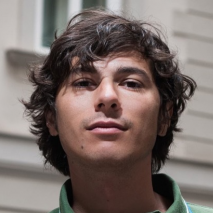


UNESCO’s new Science Report, The Race against Time for Smarter Development includes The integration of refugee and displaced scientists creates a win–win situation.
Written by Peter McGrath, Coordinator of the InterAcademy Partnership (IAP) and the TWAS Science Policy/Science Diplomacy programme, and Edward W. Lempinen, a writer and media relations specialist at the University of California, Berkeley (USA) and former public information officer for TWAS, this chapter sheds some light on scientific communities affected by war, repression and dislocation.
The article (you can read it in full by downloading a PDF here) includes the series of practical recommendations for different sectors of society discussed during a March 2017 workshop run by TWAS, the Euro-Mediterranean University and the Italian Istituto nazionale di oceanografia e di geofisica sperimentale (OGS).
In particular, the workshop recommended that host governments:
It also recommended that research funding agencies:
"The workshop also recommended motivating international donors and development banks and other funding entities to help rebuild and invest in the type of scientific and research infrastructure that would be essential to encourage the return of qualified personnel to their home countries, once it was safe for them to do so, thereby stimulating brain circulation rather than brain drain," authors added.
The article stresses also the fact that three major international scientific organizations – TWAS, IAP and the International Science Council (ISC) – are now addressing this issue by working on the Science In Exile project.
"The scientific community can take the lead on this issue by serving as a model for what must be a co-ordinated, holistic response. In fact, we would argue that the global scientific community is duty-bound to do more for its vulnerable colleagues" authors wrote.
